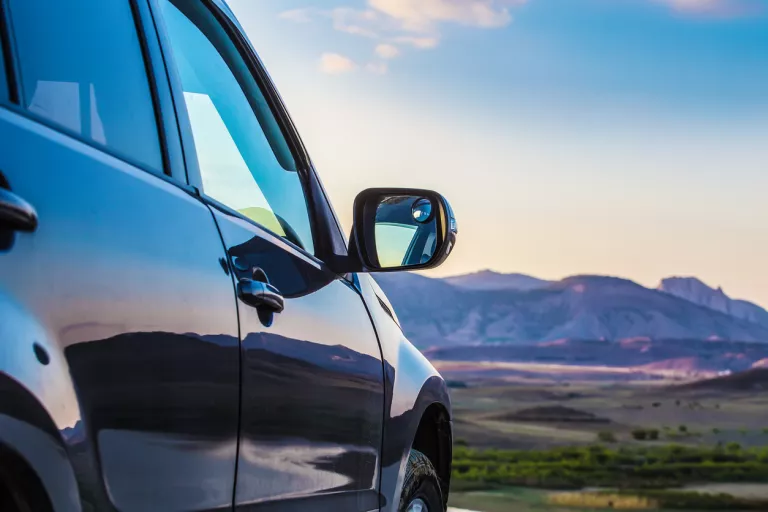Dispelling the Myth of the Safe SUV
Bigger isn’t better

You don’t have to hoist yourself into a 14-mile-per-gallon SUV to be safe on the highway. While that’s been the hunch of many an accident-free driver, it’s now the conclusion of U.S. Department of Energy researchers, who performed a "risk analysis" using crash data from the Insurance Institute for Highway Safety. Their neatly graphed results, which unblinkingly chart annual deaths per million vehicles sold for 40 different models, show that drivers of many small cars are statistically safer than drivers of the average sport-utility vehicle. That will shock the SUV pilot who assumed that, if nothing else, she could guarantee her own protection when accelerating onto the dog-eat-dog interstate. But more than a dozen passenger cars, including the subcompact, fuel-efficient Volkswagen Jetta and Honda Civic, protect their drivers better than SUVs.
The study also found that most passenger cars are safer than the average sport-utility vehicle or pickup truck when the risk posed to other drivers is taken into account, a figure the researchers call "combined risk." Even the safest SUV on the road, the mammoth Chevrolet Suburban, is bested by much smaller Honda Accords and Toyota Camrys. The safest vehicles of them all? Minivans and import luxury cars. The worst: full-size Chevrolet, Ford, and Dodge pickup trucks.
So much for the conventional wisdom that large cars are inherently safe and small cars inherently dangerous. A wide disparity in results among small cars like the front-of-the-pack Jetta and Civic and the relatively risky Ford Escort and Dodge Neon suggests that vehicle design is more important than sheer mass.
"The argument that lowering the weight of cars to achieve high fuel economy has resulted in excess deaths is unfounded," says Tom Wenzel of Lawrence Berkeley National Laboratory, coauthor of the report with physicist Marc Ross of the University of Michigan. "Safety is a challenging concept. It includes the design of the car itself, driver demographics and behavior, the kinds of roads, the time of day–a whole host of factors." While highway safety is complex, one thing is clear: A safety-conscious driver need not purchase a vehicle by the pound.
To curl up with your own copy of "An Analysis of Traffic Deaths by Vehicle Type and Model," go to www.aceee.org/pubs/t021full.pdf. For alternatives to SUVs, seek the counsel of Tom and Ray Magliozzi, Click and Clack of National Public Radio. The perpetually funny auto mechanics have created an interactive Web page that helps you find a vehicle with an SUV’s virtues but without its safety problems and fuel inefficiencies. Need to carry a lot of people? Consider a Dodge or Chrysler minivan; their four-cylinder versions get 27 miles per gallon on the highway. Just looking for all-wheel drive for snowy roads? Check out a Toyota RAV4 or various Subarus, which also eke out 27 mpg highway.
 The Magazine of The Sierra Club
The Magazine of The Sierra Club



